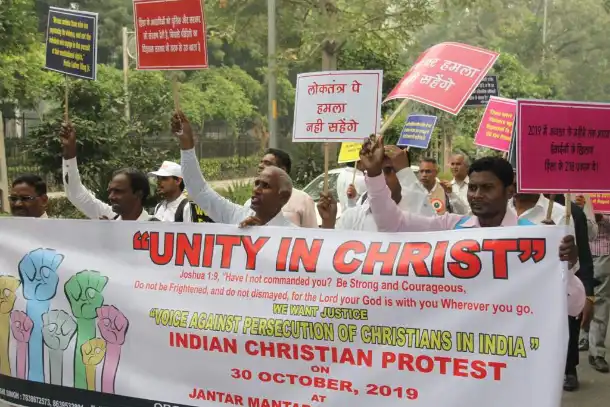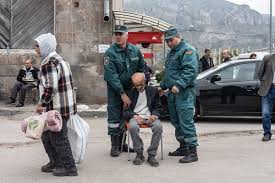As another year coming to an end, there have been reports and concerns about instances of Christian persecution in India. It’s important to note that the situation may have evolved since then, and for the latest and most accurate information, it is recommended to refer to recent reports, news sources, and human rights organizations.
Background:
Christianity is a minority religion in India, and while the majority of the population practices Hinduism, India is known for its religious diversity and tolerance. However, reports of incidents targeting Christians, including violence, discrimination, and social ostracism, have raised concerns both domestically and internationally.
Types of Persecution:
- Violence: There have been reports of violent attacks on Christians, their places of worship, and their communities. These incidents may involve physical harm, destruction of property, and intimidation.
- Discrimination and Social Exclusion: Christians in some areas have faced discrimination and social exclusion, including being denied access to basic services, educational opportunities, and employment due to their religious beliefs.
- Anti-Conversion Laws: Some states in India have anti-conversion laws that aim to regulate religious conversions. Critics argue that these laws can be misused to target religious minorities, including Christians, by falsely accusing them of engaging in forced or fraudulent conversions.
- Nationalism and Religious Identity: There has been a rise in religious nationalism in India, which has, in some instances, contributed to an atmosphere of intolerance. This can impact religious minorities, including Christians, who may face pressure to conform to the dominant religious identity.
Response and Advocacy:
Numerous human rights organizations, both within India and internationally, monitor and report on incidents of religious persecution. Advocacy groups work to raise awareness about these issues, promote religious freedom, and call for accountability when violations occur.
Government Response:
The Indian government has, at times, responded to reports of religious persecution by condemning violence and asserting its commitment to protecting the rights of all citizens, regardless of their religious beliefs. However, opinions on the effectiveness of government responses may vary.
International Concerns:
Reports of Christian persecution in India have garnered attention from international organizations, governments, and religious advocacy groups. Some international bodies have expressed concern about the need to protect religious minorities and uphold the principles of religious freedom.
Conclusion:
Christian persecution in India is a complex and multifaceted issue influenced by a combination of socio-cultural, political, and religious factors. It is crucial to approach the topic with nuance, recognizing the diversity of experiences within different regions of the country. Continued efforts to promote dialogue, understanding, and the protection of religious freedom are essential for fostering a society where people of all faiths can coexist peacefully.



Be First to Comment